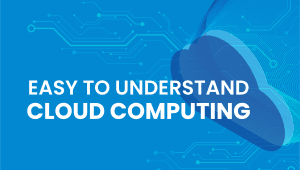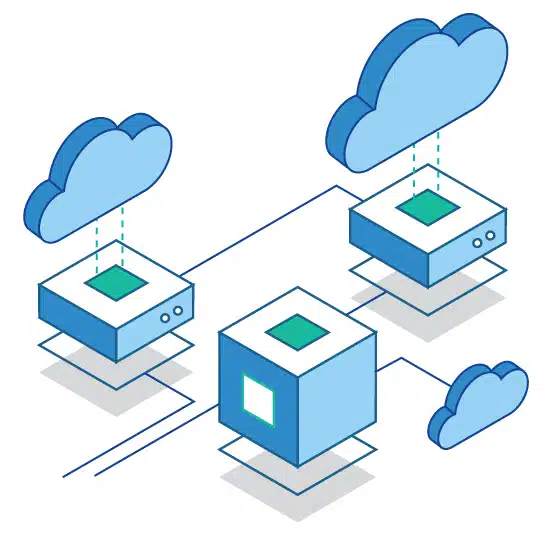Difference between Public, Private and Hybrid Cloud Storage - All you need to know
What is Public Cloud vs. Private Cloud vs. Hybrid Cloud Storage
If you need a cloud you can get by following this link.
Below we will show some features of these clouds:
Public Cloud
A public cloud is one based on the standard cloud computing model, in which a service provider makes resources, such as virtual machines (VMs), applications or storage, available to the general public over the internet. Public cloud services may be free or offered on a pay-per-usage model.
The main benefits of using a public cloud service are:
- it reduces the need for organizations to invest in and maintain their own on-premises IT resources;
- it enables scalability to meet workload and user demands; and
- there are fewer wasted resources because customers only pay for the resources they us
Public cloud is a fully virtualized environment. In addition, providers have a multi-tenant architecture that enables users — or tenants — to share computing resources. Each tenant’s data in the public cloud, however, remains isolated from other tenants. Public cloud also relies on high-bandwidth network connectivity to rapidly transmit data.
Public cloud storage is typically redundant, using multiple data centers and careful replication of file versions. This characteristic has given it a reputation for resiliency.
Use Cases of public cloud:
The public cloud has several use cases, including:
- Infrastructure as a Service (IaaS): IaaS is a service model that allows users to rent computing resources, such as servers, storage, and networking, from a cloud provider. With IaaS, users can quickly scale up or down their computing materials based on their needs.
- Platform as a Service (PaaS): PaaS is a service model that provides users with a platform for developing, testing, and deploying applications. PaaS eliminates the need for users to manage the underlying infrastructure, allowing them to focus on their applications.
- Software as a Service (SaaS): SaaS is a service model that provides users access to software applications over the Internet. With SaaS, users do not need to install or manage the software on their computers.
Features of public cloud:
The public cloud offers several features that make it a popular choice for organizations, including:
- Scalability: The public cloud allows users to quickly scale up or down their computing materials based on their needs. This makes it easy for organizations to handle unexpected spikes in demand.
- Flexibility: The public cloud offers a wide range of computing resources, including servers, storage, and networking, allowing users to choose the resources that best fit their needs.
- Pay-Per-Use: With the public cloud, users only pay for the resources they use. This makes it easy for organizations to manage their computing costs.
Advantages of public cloud:
The public cloud offers several benefits, including:
- Cost Savings: The public cloud eliminates the need for organizations to invest in and maintain their computing infrastructure. This can result in significant cost savings.
- Accessibility: The public cloud can be accessed from somewhen with an internet connection, making it easy for organizations to collaborate and work remotely.
- Scalability: The public cloud allows organizations to quickly scale up or down their computing materials based on their needs, making handling unexpected spikes in demand easy.
Disadvantages of the public cloud:
The public cloud also has some drawbacks, including:
- Security: The public cloud can be vulnerable to security threats like hacking and data breaches. Organizations must take steps to ensure that their data is protected.
- Dependence: Organizations that rely on the public cloud for their computing needs may become dependent on their cloud provider. If the provider experiences a service disruption, the organization may be unable to access its data or applications.
- Limited Control: The public cloud can limit an organization’s control over its computing infrastructure. This can make it challenging to customize their infrastructure to meet their needs.
Private Cloud
A private cloud is a type of cloud computing that delivers similar advantages to the public cloud, including scalability and self-service, but through a proprietary architecture. Unlike public clouds, which deliver services to multiple organizations, a private cloud is dedicated to a single organization.
A private cloud provides the same basic benefits as a public cloud. These include self-service and scalability; multi-tenancy; the ability to provision machines; changing computing resources on-demand; and creating multiple machines for complex computing jobs, such as big data. Chargeback tools track computing usage, and business units pay only for the resources they use.
In addition, the private cloud offers hosted services to a limited number of people behind a firewall, so it minimizes the security concerns some organizations have around the cloud. The private cloud also gives companies direct control over their data.
But private clouds have some disadvantages. For example, on-premises IT — rather than a third-party cloud provider — is responsible for managing the private cloud. As a result, private cloud deployments carry the same staffing, management, maintenance and capital expenses as traditional data center ownership. Additional private cloud expenses include virtualization, cloud software, and cloud management tools.
Use Cases of a private cloud:
The private cloud has several use cases, including:
- DevOps: DevOps teams can use the private cloud to deploy and manage their development and testing environments quickly. This allows them to test and deploy code faster and more efficiently.
- Compliance: Organizations that need to comply with specific regulations, such as HIPAA or PCI DSS, can use the private cloud to maintain control over their data and infrastructure.
- Customization: Organizations that require customized computing environments can use the private cloud to build and manage their infrastructure to meet their specific needs.
Features of a private cloud:
The private cloud offers several features that make it a popular choice for organizations, including:
- Security: The private cloud provides organizations complete control over their data and infrastructure, allowing them to implement robust security compute to protect their sensitive data.
- Customization: The private cloud allows organizations to customize their computing environment to meet their specific needs, including the ability to select their hardware and software.
- Control: The private cloud gives organizations complete control over their infrastructure, allowing them to manage their computing resources more efficiently.
Advantages of a private cloud:
The private cloud offers several benefits, including:
- Security: The private cloud provides organizations complete control over their data and infrastructure, allowing them to implement robust security compute to protect their sensitive data.
- Customization: The private cloud allows organizations to customize their computing environment to meet their specific needs, including the ability to select their hardware and software.
- Control: The private cloud gives organizations complete control over their infrastructure, allowing them to manage their computing resources more efficiently.
Disadvantages of a private cloud:
The private cloud also has some drawbacks, including:
- Cost: Building and managing a private cloud infrastructure can be expensive, particularly for small and mid-sized organizations.
- Scalability: The private cloud may be less scalable than the public cloud, particularly if the resources of its infrastructure limit an organization.
- Maintenance: The private cloud requires organizations to maintain their infrastructure, which can be time-consuming and require specialized expertise.
Hybrid Cloud
A hybrid cloud is a cloud computing environment that uses a mix of on-premises, private cloud, and third-party, public cloud services with orchestration between the two platforms. By allowing workloads to move between private and public clouds as computing needs and costs change, the hybrid cloud gives businesses greater flexibility and more data deployment options.
The public cloud’s flexibility and scalability eliminate the need for a company to make massive capital expenditures to accommodate short-term spikes in demand. The public cloud provider supplies computing resources, and the company only pays for the resources it consumes.
Despite its benefits, the hybrid cloud can present technical, business, and management challenges. Private cloud workloads must access and interact with public cloud providers, so hybrid cloud requires API compatibility and solid network connectivity.
For the public cloud piece of the hybrid cloud, there are potential connectivity issues, SLA breaches, and other possible public cloud service disruptions. To mitigate these risks, organizations can architect hybrid workloads that interoperate with multiple public cloud providers. However, this can complicate workload design and testing. In some cases, workloads slated for hybrid cloud are redesigned to address the specific providers’ APIs.
It’s your choice to think who is the best. I hope that this article will help to observe the change.
Public Cloud Use Cases
Public clouds are ideal for businesses that need to store, process, and manage large amounts of data or have unpredictable traffic. Public cloud providers like Amazon Web Services (AWS), Microsoft Azure, and Google Cloud Platform (GCP) offer various services, including computing power, storage, and databases.
Here are some public cloud use cases:
- E-commerce websites: Retailers use public clouds to handle sudden spikes in traffic during peak shopping periods, such as Black Friday and Cyber Monday.
- Mobile and web applications: Developers use public clouds to deploy and scale their applications quickly and cost-effectively.
- Data analytics: Data analysts use public clouds to store and process large amounts of data, perform complex data analysis, and generate insights.
- Disaster recovery: Businesses use public clouds to back up their data and applications in case of a disaster.
Hybrid Cloud Features
A hybrid cloud combines the best features of public and private clouds. It enables businesses to leverage the benefits of public clouds while also having control over their data and applications. Here are some hybrid cloud features:
- Cloud Bursting: Businesses can use public clouds to handle sudden spikes in traffic while having the option to move some of their workloads back to their private clouds when traffic subsides.
- Data Portability: Businesses can move their data and applications between public and private clouds as needed, depending on their performance, security, and cost requirements.
- Customization: Businesses can customize their private clouds to meet their needs, such as compliance, security, and performance.
- Cost Optimization: Hybrid cloud allows businesses to optimize their costs using public clouds for non-sensitive workloads and private clouds for sensitive workloads.
Advantages of Hybrid Cloud
Hybrid cloud offers many advantages to businesses that need the flexibility, scalability, and cost-effectiveness of public clouds while also requiring the security, control, and customization of private clouds. Here are some advantages of hybrid cloud:
- Scalability: Hybrid cloud enables businesses to scale their applications quickly and cost-effectively to meet changing demands.
- Flexibility: Hybrid cloud allows businesses to choose the right cloud for the right workload, depending on their performance, security, and cost requirements.
- Security: Hybrid cloud provides businesses with the security of private clouds while offering the cost-effectiveness of public clouds.
- Control: Hybrid cloud gives businesses the power they need over their data and applications, allowing them to customize their private clouds to meet their needs.
Disadvantages of Hybrid Cloud
While the hybrid cloud offers many advantages, it also has some disadvantages that businesses must be aware of. Here are some disadvantages of the hybrid cloud:
- Complexity: Hybrid cloud requires businesses to manage and integrate multiple cloud environments, which can be complex and time-consuming.
- Cost: Hybrid cloud can be more expensive than public cloud solutions, as businesses must invest in private cloud infrastructure and manage their cloud environments.
- Security Risks: Hybrid cloud introduces new security risks, as businesses must ensure their data and applications are secure across multiple cloud environments.
Public cloud is a cloud computing model where third-party service providers offer computing resources, such as servers and storage, over the internet. Private cloud, on the other hand, is a cloud computing model where computing resources are dedicated to a single organization, either on-premises or through a third-party provider. Hybrid cloud is a combination of public and private clouds, allowing businesses to use both cloud models for different workloads.
Public cloud offers several benefits to businesses, including cost-effectiveness, scalability, and ease of use. Public cloud providers like Amazon Web Services, Microsoft Azure, and Google Cloud Platform offer a wide range of services, including computing power, storage, and databases, that can be accessed easily and quickly.
Private cloud offers several benefits to businesses, including security, control, and customization. Private cloud allows businesses to have greater control over their computing resources and data, ensuring that they meet specific performance, security, and compliance requirements.
Hybrid cloud offers several benefits to businesses, including flexibility, scalability, security, and cost-effectiveness. With hybrid cloud, businesses can choose the right cloud for the right workload, ensuring that they meet specific performance, security, and compliance requirements while also optimizing costs.
Public cloud is ideal for businesses that need to store, process, and manage large amounts of data or have unpredictable traffic. Use cases for public cloud include e-commerce websites, mobile and web applications, data analytics, and disaster recovery.
A private cloud is ideal for businesses that require greater security, control, and customization. Use cases for private cloud include healthcare organizations, financial institutions, and government agencies.
Hybrid cloud is ideal for businesses that need the flexibility and scalability of public clouds while also requiring the security and control of private clouds. Use cases for hybrid cloud include e-commerce websites, mobile and web applications, data analytics, and disaster recovery.























